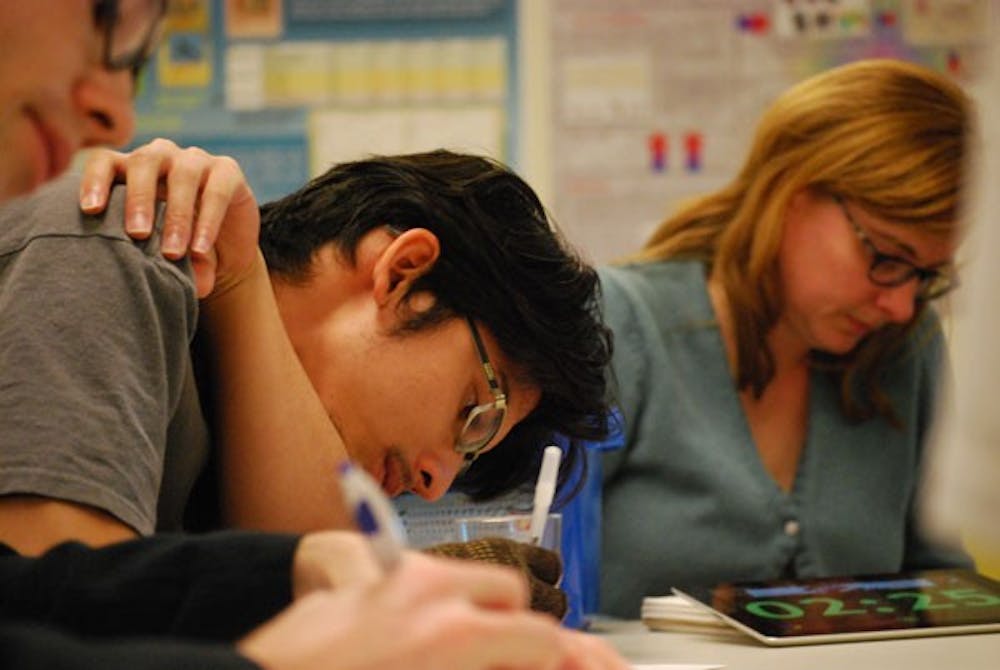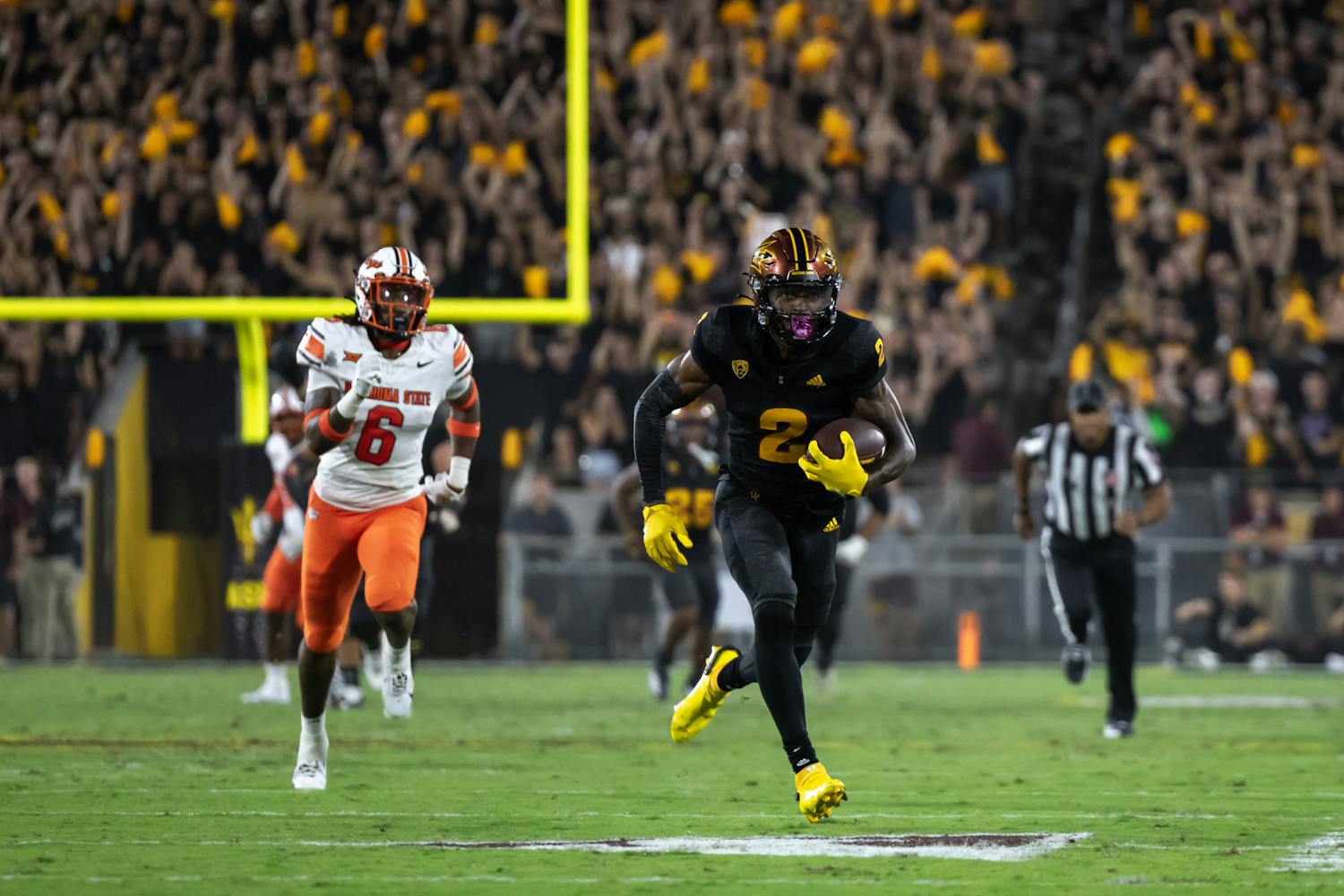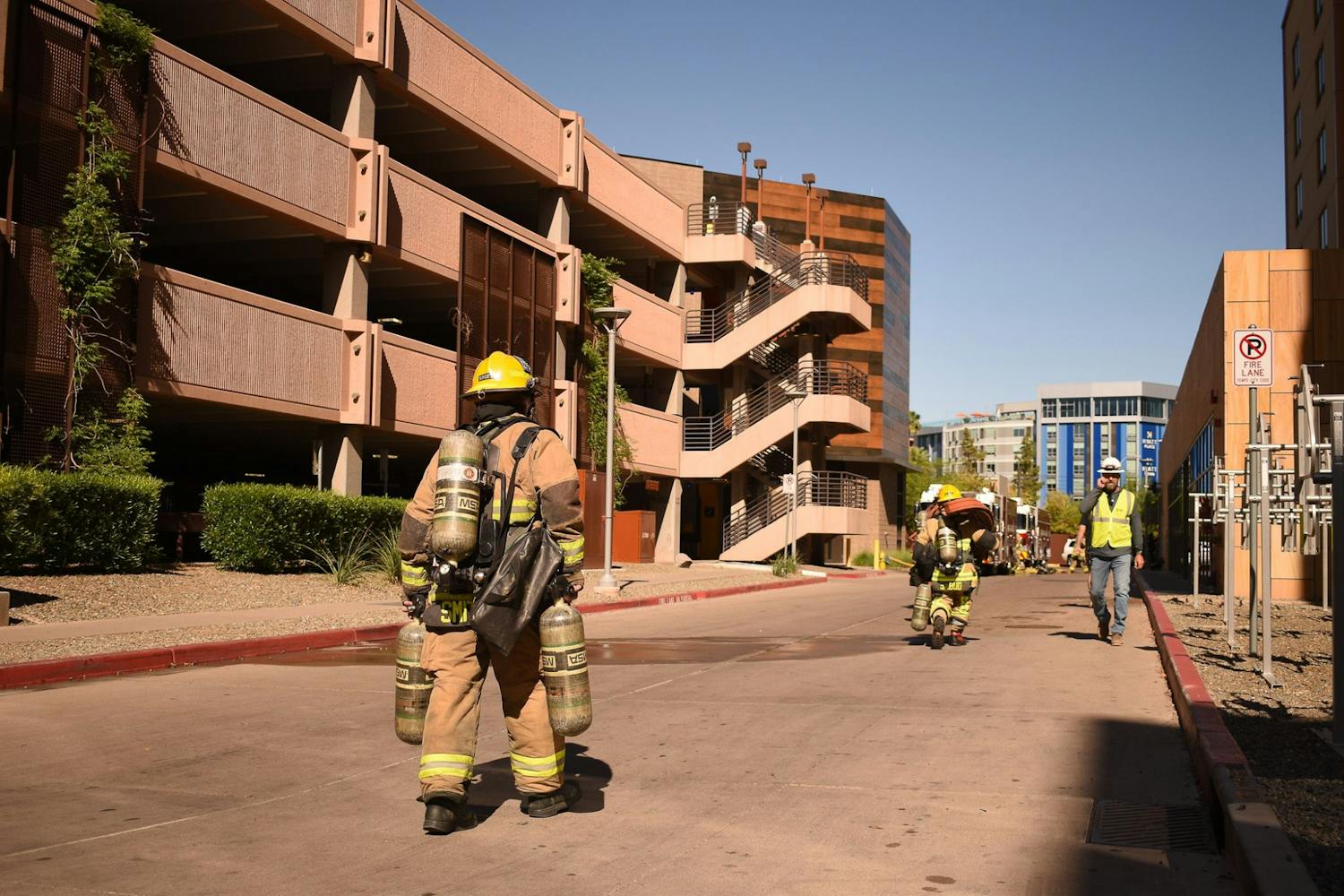 Joey Eschrich (left), research and operations coordinator for the Center for Science and the Imagination, and Wesley de la Rosa (center), digital culture senior, quickly write down their "Green Dreams" in the five-minute time constraint for the Green Dreams project in Wrigley Hall Wednesday afternoon. (Photo by Murphy Bannerman)
Joey Eschrich (left), research and operations coordinator for the Center for Science and the Imagination, and Wesley de la Rosa (center), digital culture senior, quickly write down their "Green Dreams" in the five-minute time constraint for the Green Dreams project in Wrigley Hall Wednesday afternoon. (Photo by Murphy Bannerman)ASU’s Center for Science and the Imagination held a writing workshop Wednesday for prospective participants in Tomorrow Project USA’s Green Dreams, a writing contest for students interested in science fiction and a more sustainable future.
Joey Eschrich, research coordinator at the Center, said ASU is only the second school in the nation to partner with Intel and host the Tomorrow Project. The other is the University of Washington.
Winners of the contest will be published by Intel and awarded $200.
“The partnership is great because it can get 70,000 students thinking creatively,” Eschrich said. “It can open up a new arena in talking about the future.”
ASU is the best place to have this competition because it has a large, diverse body of students and the first school in the world dedicated to sustainability, Eschrich said.
“The school is also located in a place with a massive supply of solar energy, open space and resources,” he said. “Phoenix is a laboratory for coming up with solutions.”
The “write-in” at Wrigley Hall on the Tempe campus was an encouraging way for people to start writing because thinking about the future can be intimidating sometimes, he added.
The workshop is meant for students to start their creative process, collaborate and share their ideas with their peers, Eschrich said.
The write-in started with a free writing session in which Eschrich encouraged students to brainstorm ideas for a more optimistic and sustainable future that is beautiful, but not perfect.
“We’re not looking for utopia,” he said.
Students were then asked to think about what their ecological environment’s structure would look like and how the characters in their world would lead their daily lives.
Nina Miller, graphic designer at the Center, offered advice for participants looking to refine their writing.
“Focus on emotion and character,” Miller told students.
She said they were building together for a more positive future as she shared her thoughts about the project with students.
Contest participant Clay Taylor, an accounting and computer information systems senior, said he was interested in the contest because he wants to learn more about how technology and ecology come together and how technology will shape the environment in the future.
“Just because we can build something doesn’t always mean it makes sense to do it,” Taylor said.
Business communications junior Jared Wuethrich said he’s interested in the current state of technology and its potential to evolve.
“I want to see how it will affect us,” Wuethrich said.
Reach the reporter at adrian.martinez.1@asu.edu




